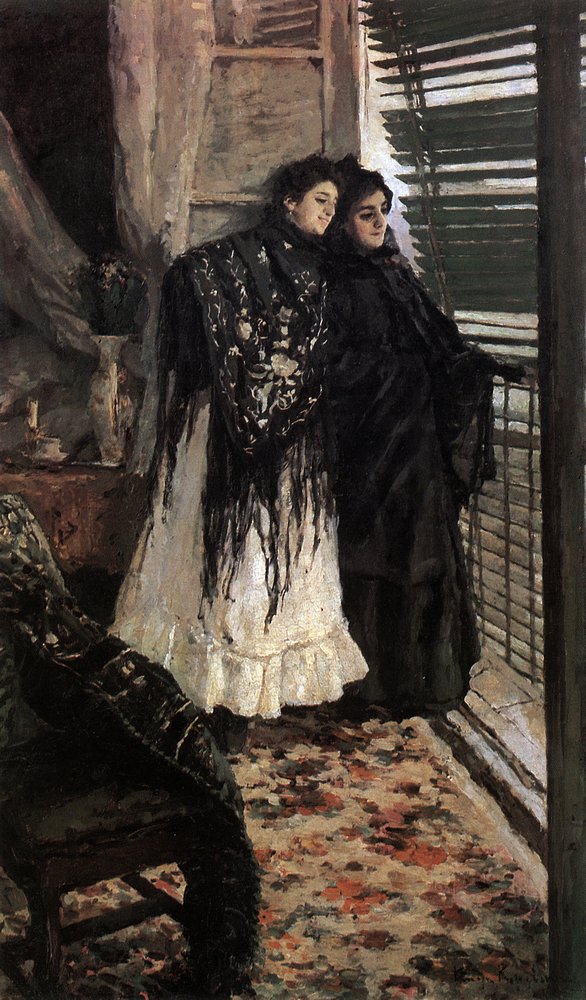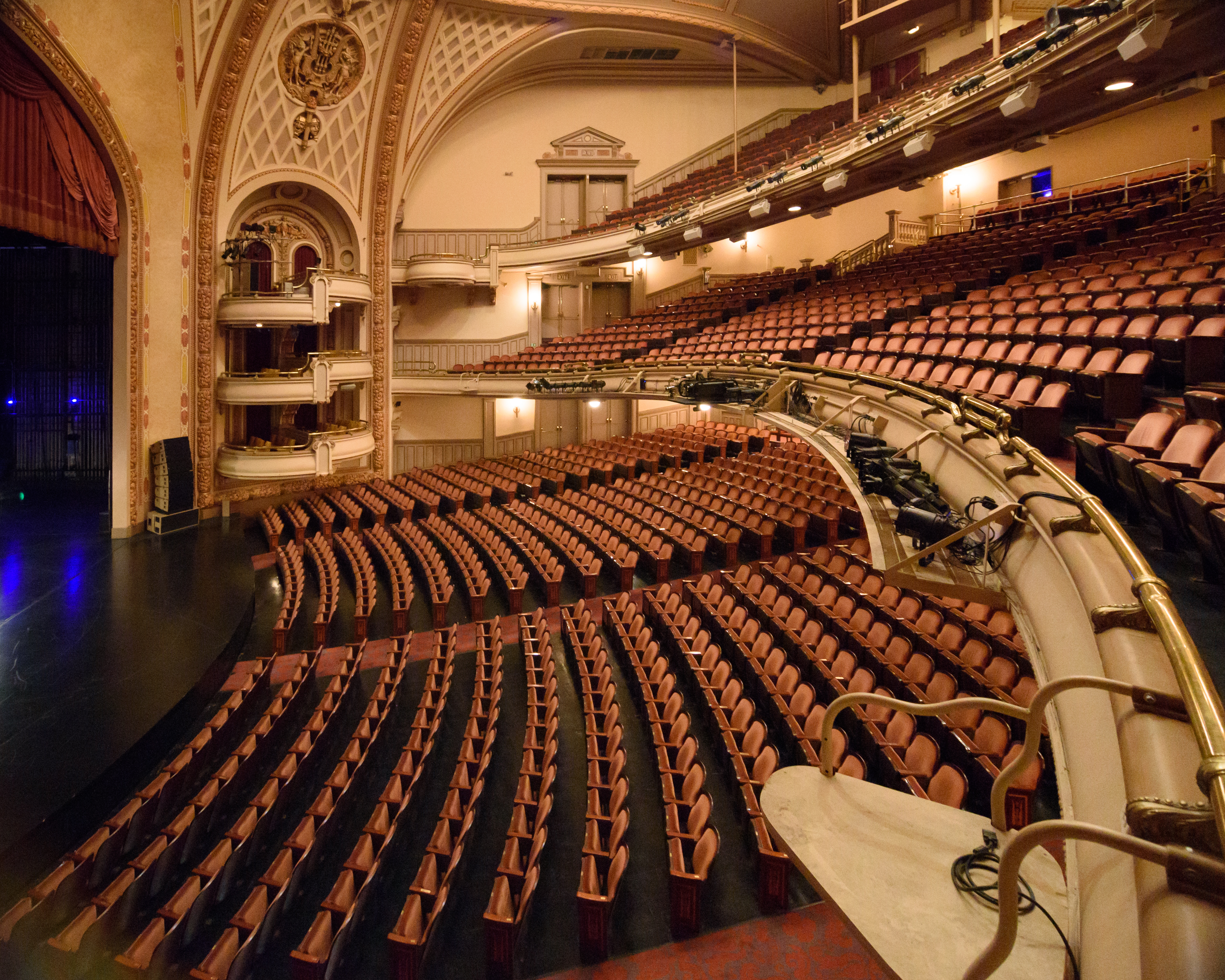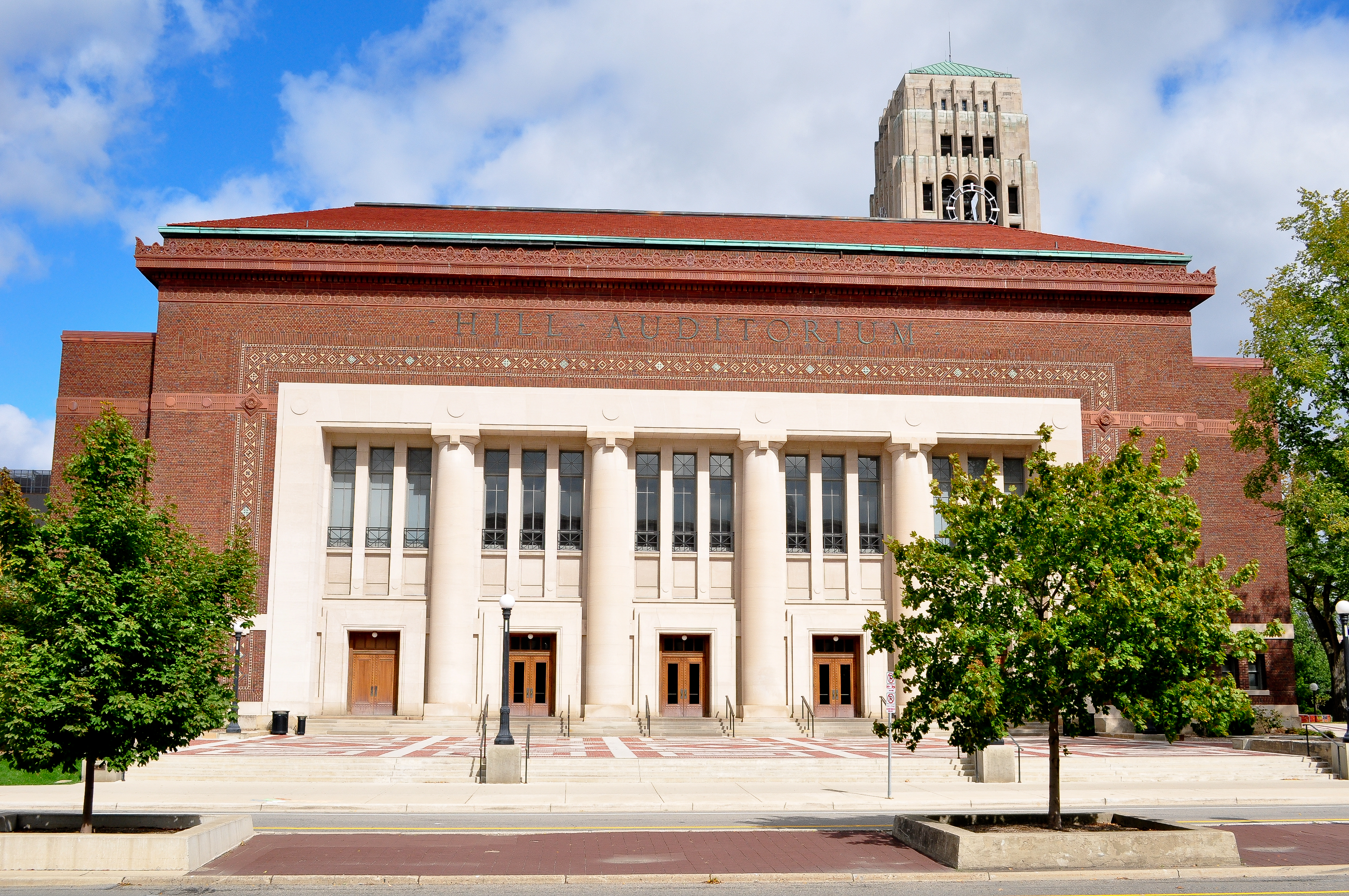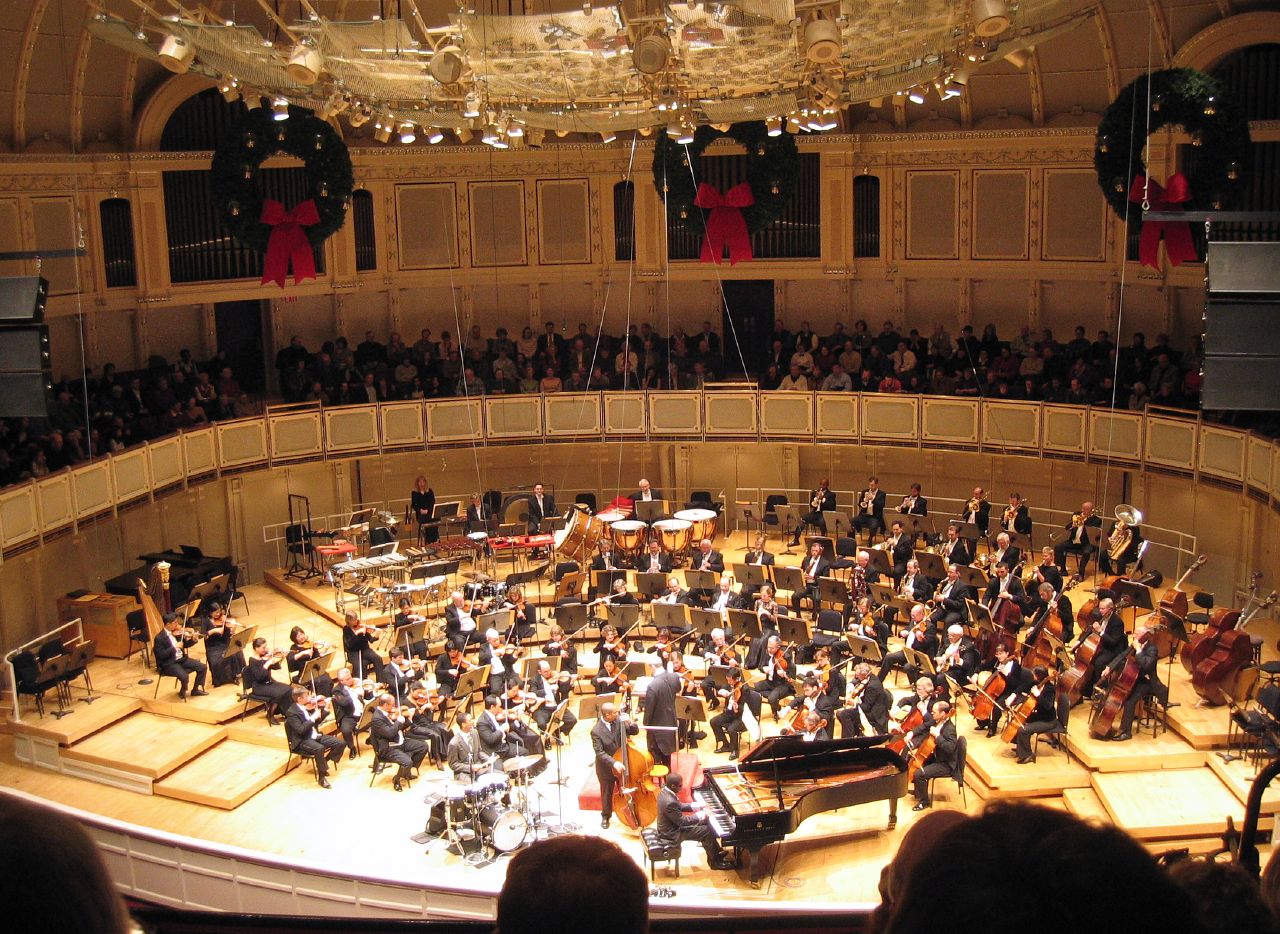|
The Invisible City Of Kitezh
''The Legend of the Invisible City of Kitezh and the Maiden Fevroniya'' ( rus, ะกะบะฐะทะฐะฝะธะต ะพ ะฝะตะฒะธะดะธะผะพะผ ะณัะฐะดะต ะะธัะตะถะต ะธ ะดะตะฒะต ะคะตะฒัะพะฝะธะธ, italic=yes, Skazรกniye o nevรญdimom grรกde Kรญtezhe i dรฉve Fevrรณnii ) is an opera in four acts by Nikolai Rimsky-Korsakov. The libretto was written by Vladimir Belsky, and is based on a combination of two Russian legends: that of Saints Peter and Fevronia of Murom, Saint Fevroniya of Murom, and the city of Kitezh, which became invisible when attacked by the Tatars. The opera was completed in 1905, and the premiere performance took place at the Mariinsky Theatre in Saint Petersburg, St. Petersburg, on February 7, 1907, the last in Rimsky-Korsakovโs lifetime. Composition history Rimsky-Korsakov and Belsky first became interested in writing an opera on the Kitezh legend during the winter of 1898-1899, while they were working on the libretto to ''The Tale of Tsar Saltan (opera), The Tale of Tsar Saltan''. The ide ... [...More Info...] [...Related Items...] OR: [Wikipedia] [Google] [Baidu] |
Nikolai Rimsky-Korsakov
Nikolai Andreyevich Rimsky-Korsakov . At the time, his name was spelled ะะธะบะพะปะฐะน ะะฝะดัะตะตะฒะธัั ะ ะธะผัะบัะน-ะะพััะฐะบะพะฒั. la, Nicolaus Andreae filius Rimskij-Korsakov. The composer romanized his name as ''Nicolas Rimsky-Korsakow''.The BGN/PCGN transliteration of Russian is used for his name here. ALA-LC system: Nikolaฤญ Andrevich Rimskiฤญ-Korsakov, ISO 9 system: Nikolaj Andreeviฤ Rimskij-Korsakov. (18 March 1844 โ 21 June 1908) was a Russian composer, a member of the group of composers known as The Five. He was a master of orchestration. His best-known orchestral compositionsโ'' Capriccio Espagnol'', the ''Russian Easter Festival Overture'', and the symphonic suite ''Scheherazade''โare staples of the classical music repertoire, along with suites and excerpts from some of his 15 operas. ''Scheherazade'' is an example of his frequent use of fairy-tale and folk subjects. Rimsky-Korsakov believed in developing a nationalistic style of classical ... [...More Info...] [...Related Items...] OR: [Wikipedia] [Google] [Baidu] |
Konstantin Korovin
Konstantin Alekseyevich Korovin (russian: ะะพะฝััะฐะฝัะธฬะฝ ะะปะตะบัะตฬะตะฒะธั ะะพัะพฬะฒะธะฝ, first name often spelled Constantin; 11 September 1939) was a leading Russian Impressionist painter. Biography Youth and education Konstantin was born into a wealthy merchant family of Old BelieversBrief biography @ RusArtNet. and his mother was from the nobility, although they were officially registered as "peasants" from ". His father, Aleksey Mikhailovich Korovin, earned a university degree and was more interest ... [...More Info...] [...Related Items...] OR: [Wikipedia] [Google] [Baidu] |
Felix Blumenfeld
Felix Mikhailovich Blumenfeld (russian: ะคะตฬะปะธะบั ะะธั ะฐฬะนะปะพะฒะธั ะะปัะผะตะฝัะตฬะปัะด; – 21 January 1931) was a Russian and Soviet composer, conductor of the Imperial Opera St-Petersburg, pianist, and teacher. He was born in Kirovograd (in present-day Ukraine), Kherson Governorate, Russian Empire, the son of Mikhail Frantsevich Blumenfeld, of Austrian Jewish origin, and the Maria Szymanowska. Blumenfeld studied with Gustav Neuhaus, married to his older sister. Then he studied composition at the St. Petersburg Conservatory under Nikolai Rimsky-Korsakov and piano under Fedor Stein between 1881 and 1885. He then taught piano there himself from 1885 until 1918, whilst also serving as conductor of the Mariinsky Theatre until 1911. The Mariinsky saw the premieres of the operas composed by his mentor Rimsky-Korsakov. He was also the conductor at the Russian premiere of Wagner's opera ''Tristan und Isolde''. In 1908, he conducted the Paris premiere of Modest Mu ... [...More Info...] [...Related Items...] OR: [Wikipedia] [Google] [Baidu] |
Galina Gorchakova
Galina Vladimirovna Gorchakova (russian: ะะฐะปะธะฝะฐ ะะปะฐะดะธะผะธัะพะฒะฝะฐ ะะพััะฐะบะพะฒะฐ, born 1 March 1962) is a distinguished Russian lyric soprano. Beginnings Gorchakova was born in Novokuznetsk to a musical family. She moved to Novosibirsk in Siberia with her parents who were singers at the opera house there. It was in that city that she attended music school, college and the Conservatoire from which she graduated in 1988. While she was there, she was auditioned for the opera company of Sverdlovsk and transferred there as a leading soprano. After a period, she became dissatisfied and asked to audition at the Mariinsky Theatre in St Petersburg. Artistic director Valery Gergiev invited her to join the company as a guest artist and she sang ''Il trovatore'' and ''Prince Igor''. ''The Fiery Angel'' She was asked to learn the role of Renata in Prokofiev's '' The Fiery Angel'' for Sir Edward Downes who was auditioning singers for a joint production of the opera for Cov ... [...More Info...] [...Related Items...] OR: [Wikipedia] [Google] [Baidu] |
Valery Gergiev
Valery Abisalovich Gergiev (russian: ะะฐะปะตฬัะธะน ะะฑะธัะฐฬะปะพะฒะธั ะะตฬัะณะธะตะฒ, ; os, ะะตัะณะธัั ะะฑะธัะฐะปั ัััั ะะฐะปะตัะธ, Gergity Abisaly fyrt Valeri; born 2 May 1953) is a Russian conductor and opera company director. In 1988 he became general director and artistic director of the Mariinsky Theatre and artistic director of the White Nights Festival in St. Petersburg. He was chief conductor of the Munich Philharmonic from September 2015 until he was dismissed on 1 March 2022. Early life Gergiev was born in Moscow. He is the son of Tamara Timofeevna (Tatarkanovna) Lagkueva and Abisal Zaurbekovich Gergiev, both of Ossetian origin. He and his siblings were raised in Vladikavkaz in North Ossetia in the Caucasus. He had his first piano lessons in secondary school before going on to study at the Leningrad Conservatory from 1972 to 1977. His principal conducting teacher was Ilya Musin. His sister, Larissa, is a pianist and director of the Marii ... [...More Info...] [...Related Items...] OR: [Wikipedia] [Google] [Baidu] |
Kirov Opera
The Mariinsky Theatre ( rus, ะะฐัะธะธะฝัะบะธะน ัะตะฐัั, Mariinskiy teatr, also transcribed as Maryinsky or Mariyinsky) is a historic theatre of opera and ballet in Saint Petersburg, Russia. Opened in 1860, it became the preeminent music theatre of late 19th-century Russia, where many of the stage masterpieces of Tchaikovsky, Mussorgsky, and Rimsky-Korsakov received their premieres. Through most of the Soviet era, it was known as the Kirov Theatre. Today, the Mariinsky Theatre is home to the Mariinsky Ballet, Mariinsky Opera and Mariinsky Orchestra. Since Yuri Temirkanov's retirement in 1988, the conductor Valery Gergiev has served as the theatre's general director. Name The theatre is named after Maria Alexandrovna (Marie of Hesse), Empress Maria Alexandrovna, wife of Alexander II of Russia, Tsar Alexander II. There is a bust of the Empress in the main entrance foyer. The theatre's name has changed throughout its history, reflecting the political climate of the time: * 18 ... [...More Info...] [...Related Items...] OR: [Wikipedia] [Google] [Baidu] |
Brooklyn Academy Of Music
The Brooklyn Academy of Music (BAM) is a performing arts venue in Brooklyn, New York City, known as a center for progressive and avant-garde performance. It presented its first performance in 1861 and began operations in its present location in 1908. The Academy is incorporated as a New York State not-for-profit corporation. It has 501(c)(3) status. Katy Clark became president in 2015 and left the institution in 2021. David Binder became artistic director in 2019. History 19th and early 20th centuries On October 21, 1858, a meeting was held at the Polytechnic Institute to measure support for establishing "a hall adapted to Musical, Literary, Scientific and other occasional purposes, of sufficient size to meet the requirements of our large population and worth in style and appearance of our city." [...More Info...] [...Related Items...] OR: [Wikipedia] [Google] [Baidu] |
Hill Auditorium
Hill Auditorium is the largest performance venue on the University of Michigan campus, in Ann Arbor, Michigan. The auditorium was named in honor of Arthur Hill (1847-1909), who served as a regent of the university from 1901 to 1909. He bequeathed $200,000 (equivalent to $ million in ) to the university for the construction of a venue for lectures, musical performances, and other large productions. Opened in 1913, the auditorium was designed by Albert Kahn and Associates. It was renovated by the same firm beginning in 2002 and was re-opened in 2004. With seating for up to 3,538 (originally 4,100 prior to the 2004 renovation) audience members, Hill is used for large productions on campus. Design concept Carol Rose Kahn, the architect's granddaughter, recounted that her grandfather had set out to develop a hall with perfect acoustics. The brief was to design an auditorium that would seat five thousand people, where they could hear from every seat. The only known previous example ... [...More Info...] [...Related Items...] OR: [Wikipedia] [Google] [Baidu] |
Chicago Symphony Orchestra
The Chicago Symphony Orchestra (CSO) was founded by Theodore Thomas in 1891. The ensemble makes its home at Orchestra Hall in Chicago and plays a summer season at the Ravinia Festival. The music director is Riccardo Muti, who began his tenure in 2010. The CSO is one of five American orchestras commonly referred to as the " Big Five". History In 1890, Charles Norman Fay, a Chicago businessman, invited Theodore Thomas to establish an orchestra in Chicago. Under the name "Chicago Orchestra," the orchestra played its first concert October 16, 1891 at the Auditorium Theater. It is one of the oldest orchestras in the United States, along with the New York Philharmonic, the Boston Symphony Orchestra and the Saint Louis Symphony Orchestra. Orchestra Hall, now a component of the Symphony Center complex, was designed by Chicago architect Daniel H. Burnham and completed in 1904. Maestro Thomas served as music director for thirteen years until his death shortly after the orchestra' ... [...More Info...] [...Related Items...] OR: [Wikipedia] [Google] [Baidu] |
Teatro Colรณn
The Teatro Colรณn (Spanish: ''Columbus Theatre'') is the main opera house in Buenos Aires, Argentina. It is considered one of the ten best opera houses in the world by National Geographic. According to a survey carried out by the acoustics expert Leo Beranek among leading international opera and orchestra directors, the Teatro Colรณn has the room with the best acoustics for opera and the second best for concerts in the world. The present Colรณn replaced an original theatre which opened in 1857. Towards the end of the century it became clear that a new theatre was needed and, after a 20-year process, the present theatre opened on 25 May 1908, with Giuseppe Verdi's ''Aรฏda''. The Teatro Colรณn was visited by the foremost singers and opera companies of the time, who would sometimes go on to other cities including Montevideo, Rio de Janeiro and Sรฃo Paulo. After this period of huge international success, the theatre's decline became clear and plans were made for massive ren ... [...More Info...] [...Related Items...] OR: [Wikipedia] [Google] [Baidu] |
Gran Teatre Del Liceu
Gran may refer to: People *Grandmother, affectionately known as "gran" * Gran (name) Places * Gran, the historical German name for Esztergom, a city and the primatial metropolitan see of Hungary * Gran, Norway, a municipality in Innlandet county, Norway * Gran (village), a village in Gran Municipality in Innlandet county, Norway * Grรคn, a municipality in the state of Tyrol, Austria * Gran (island), an island in Nordanstig Municipality, Gรคvleborg County, Sweden Spanish language In Spanish Gran means "Great" or "Greater", and may refer to: * Gran Canaria, an island of the Canary Islands, Spain * Gran Colombia, a modern name for a former South American country called Colombia * Gran Sabana, a natural region in Venezuela * Gran Chaco, a South American lowland natural region * Gran Asunciรณn (Greater Asunciรณn), Paraguay * Gran Chimรบ Province, a province of La Libertad Region of Peru * Gran Torre Santiago, a skyscraper in Santiago, Chile * Big Brother (franchise), called "Gran ... [...More Info...] [...Related Items...] OR: [Wikipedia] [Google] [Baidu] |
Barcelona
Barcelona ( , , ) is a city on the coast of northeastern Spain. It is the capital and largest city of the autonomous community of Catalonia, as well as the second most populous municipality of Spain. With a population of 1.6 million within city limits,Barcelona: Poblaciรณn por municipios y sexo โ Instituto Nacional de Estadรญstica. (National Statistics Institute) its urban area extends to numerous neighbouring municipalities within the and is home to around 4.8 million people, making it the [...More Info...] [...Related Items...] OR: [Wikipedia] [Google] [Baidu] |







.jpg)
